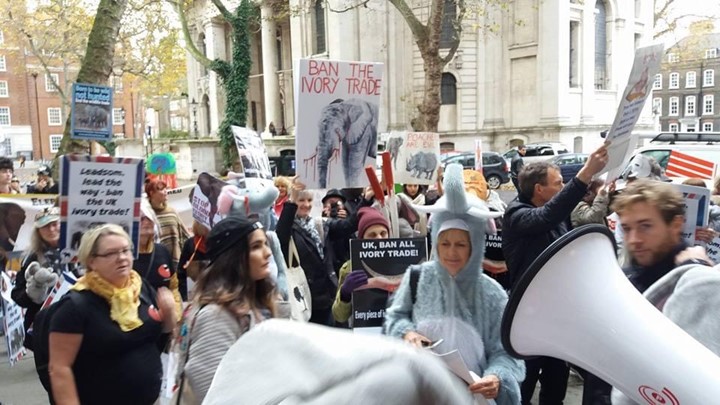

On 16 November 2016 we held a protest outside the DEFRA office, again urging the government to keep its pledge to ban the domestic ivory trade. The UK was Europe’s largest exporter of carved ivory to Asia, while ivory was also being sold on online marketplaces, making the UK one of the biggest players in ivory trade.
The Conservative Party had pledged in its election manifestos in 2010 and 2015 to ‘press for a total ban on ivory sales’, but had still failed to implement it by 2016. Within those years, tens of thousands of African elephants were poached for their ivory; at that rate, it was feared that elephants in the wild could be heading for extinction in 20 years or less.
New evidence broadcast by Hugh Fearnley-Whittingstall in the BBC documentary investigating the international ivory trade proved that illegal ivory was being sold in the UK, and this was fuelling ivory trade in other markets. He said, ‘Thousands of pieces of antique ivory are sent to a corrupt market in Asia, which (by feeding that market) makes us complicit in the killing of elephants in Africa. Can concerns for a small section of the antiques trade really outweigh doing everything we can to save the elephant?’
With irrefutable evidence that ivory from the UK was being sold into the markets of Asia, and providing cover for freshly poached ivory, we again called on the government (in a letter this day to Andrea Leadsom) to announce a total ban on the UK ivory trade, including pre-1947 ivory, at the Hanoi Conference on Illegal Wildlife Trade.
Leading wildlife activist Dominic Dyer spoke at the DEFRA protest, and the Antiques Trade Gazette covered it: Ivory protestors descend on Westminster as Stephen Fry lends support to trade ban.